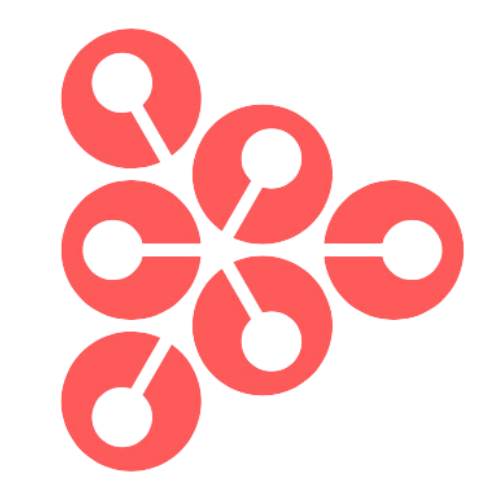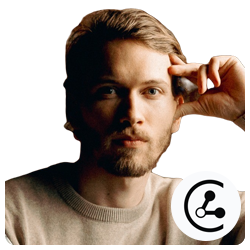

Agents & GenAI Infrastructure and Tooling Summit

Free for Everyone
Virtually April 15th, 2025
Explore cutting-edge AI Agent systems and the GenAI infrastructure that powers them.
Join technical experts for 15+ live demos showcasing the full technology stack - from foundational components to advanced agent frameworks.
Whether you're building autonomous AI solutions or strengthening your GenAI infrastructure, this virtual summit delivers practical insights to accelerate your implementation.
Event Schedule
9:15 AM to 9:45 AM ET
Beyond Gemini: Using RL to Unlock Reliable AI Agents with Open LLMs
Julien Launay, CEO

9:50 AM to 10:20 AM ET
Workflows Then Agents: The Practical Approach to Enterprise AI
Julian LaNeve, CTO

10:20 AM to 10:50 AM ET
All the Flavors of AI-Powered Search
Kacper Łukawski, Senior Developer Advocate

10:50 AM to 11:20 AM ET
Teaching AI to Reason: Reinforcement Fine-Tuning for Multi-Turn Agentic Workflows
Sameer Reddy, Research Engineer

11:20 AM to 11:50 AM ET
Trading Copilot - Smarter Insights, Confident Trades
Bhaskarjit Sarmah, Head RQA AI Lab

12:20 PM to 12:50 PM ET
Leveraging LLMs to Build Mixed-Data ML Pipelines and Search Git Hub with Natural Language
Andrew Moreland, Co-Founder

12:50 PM to 1:20 PM ET
Eval++: Why LLM Evaluation Alone Isn’t Enough
Chinar Movsisyan, Founder & CEO

1:20 PM to 1:50 PM ET
Knowledge Graphs + Semantic Search: Unlocking Smarter LLMs
Alessandro Pireno, Solutions Director

1:50 PM to 2:20 PM ET
Beyond Benchmarks: Rethinking How We Evaluate LLMs in High-Stakes Environments
Rajat Verma, Senior Staff Product Manager
2:20 PM to 2:50 PM ET
Safety Testing of the AI Agent: Vulnerabilities and Attacks Beyond the Chatbot
Alexander Borodetskiyl, VP of Growth, AI Safety

2:50 PM to 3:20 PM ET
The LLMOps Playbook: Evidence-Based Patterns from 600+ Implementations
Alex Strick van Linschoten, Machine Learning Engineer

3:20 PM to 3:50 PM ET
Reward Function As A Service: A (Relatively) Easy Recipe for Training Your Own Reasoning Model
Ville Tuulos, CEO / Co-Founder

3:50 PM to 4:20 PM ET
Closing the Reliability Gap: Practical Strategies with Guarantees for Trustworthy GenAI
Curtis Northcutt, CEO & Co-Founder

4:20 PM to 4:50 PM ET
Building a Deep Research with Open-Source
Stefan Webb, Developer Advocate

At this virtual event you’ll meet innovators at the forefront of areas
01
LLMs
Advances in architectures, fine-tuning, RAG, and scaling.
02
Quality Tuning
Performance optimization, latency reduction, and cost efficiency.
03
Vector DBs
Retrieval pipelines, indexing, and hybrid search.
04
Embeddings
Fine-tuning for applications and emerging alternatives.
05
Data Tools
Feature stores, pipelines, and workflow orchestration.
06
Trust, Risk & Security Management
Governance, adversarial attacks, compliance, and bias mitigation.
07
Agent Frameworks
Architectures, orchestration, and real-world deployments.
08
Evaluation & Monitoring
Reliability, observability, and benchmarking.
Who we are
A diverse community of data and AI professionals explore best practices for ML/Gen AI deployment in production.
Our committee
See a snapshot of the technical AI practitioners and Committee that helps drive our initiatives.
Event Presenters
How Does it Work?
- Explore Advanced AI Agent Systems – Discover the latest developments in autonomous, goal-directed AI systems and their practical applications.
- Evaluate GenAI Infrastructure Options – Compare different foundational technologies that support all generative AI applications.
- Learn From Technical Experts – Gain insights from practitioners with hands-on experience in both agent development and infrastructure deployment.
- Discover the Latest Tooling – See demonstrations of specialized tools for development, deployment, and monitoring of GenAI systems.
- Understand Security Approaches – Learn best practices for implementing guardrails for AI agents and securing GenAI infrastructure.
- Make Informed Technology Decisions – Cut through marketing hype with honest demonstrations of what various technologies can actually deliver.
- Accelerate Your Implementation – Identify the right components for your specific use cases, whether focused on agents or broader GenAI applications.
- AI Engineers & Developers building agent-based systems or working with foundational GenAI technologies
- ML/MLOps Professionals responsible for implementing and maintaining AI infrastructure
- Technical Architects designing systems that incorporate AI agents or GenAI capabilities
- Engineering Leaders making strategic decisions about AI technology investments
- AI Product Managers seeking to understand the technical capabilities and limitations of current tools
- Technical Founders building startups in the AI agent or infrastructure space
- Enterprise Innovation Teams evaluating AI agent implementations or GenAI infrastructure options
- Open Source Contributors working on AI agent frameworks or GenAI tooling projects
- Academic Researchers interested in practical applications and industry implementations
We’ll have various slotted times for presentations on April 15th, 2025. The schedule and links will be provided, and the session will take place on Google Meets.
- You can drop in the company’s or group presentation anytime during the allocated time.
- Each session will help you better understand the tooling and approaches via demos/Q&A with specialists. You can ask questions/share with others with similar interests.
- Move around the space freely, Chat 1-1 via the direct messaging feature or simply watch the host session present. The platform is easy to navigate.
- We will also give the presenters the opportunity to reach out for 1-1 meetings and vice versa.
Once you register you will get access links
We have space for 15
The MLOps World Community, & GenAI World Summit Organizers and group (see Who We Are Section)
This event is free to attend
Laptop or personal computer, and a strong, reliable wifi connection. Google Chrome is recommended.
No, the joint 6th GenAI World / MLOps World Conference and Expo are taking place on Oct. 8th & 9th in Austin Texas. You can find more info here. This is a free virtual event we are offering.
All sessions will be recorded during the event (provided speaker permissions) and will be made available to attendees approximately 2-4 weeks after the event for those who signed up.
Yes, you can inquire at faraz@mlopsworld.com
- Privacy Policy
- Code of Conduct




















